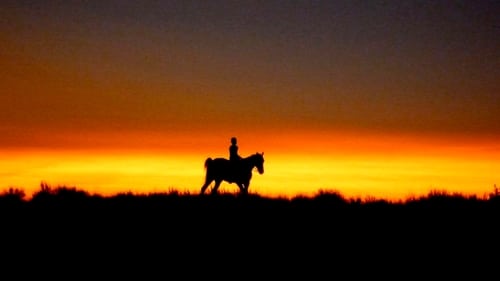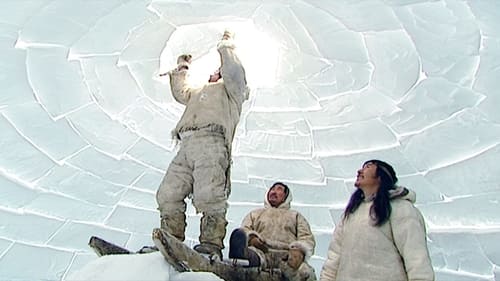
Director of Photography
1961. In Kapuivik, an Inuit man named Noah Piugattuk and his compatriots are visited by a white man who says they have to move to a reservation.

Editor
1961. In Kapuivik, an Inuit man named Noah Piugattuk and his compatriots are visited by a white man who says they have to move to a reservation.

Writer
1961. In Kapuivik, an Inuit man named Noah Piugattuk and his compatriots are visited by a white man who says they have to move to a reservation.

Writer
Inuk filmmaker Zacharias Kunuk (Atanarjuat: The Fast Runner) returns with this Arctic epic inspired by the classic John Ford western of the same name, about a vengeful husband who sets off in pursuit of the violent men who kidnapped his wife and destroyed his home.

Himself
The evolution of the depiction of Native Americans in film, from the silent era until today, featuring clips from hundreds of movies and candid interviews with famous directors, writers and actors, Native and non-Native: how their image on the screen transforms the way to understand their history and culture.

Director of Photography
Based on the journal of Knud Rasmussen's "Great Sled Journey" of 1922 across arctic Canada. The film is shot from the perspective of the Inuit, showing their traditional beliefs and lifestyle. It tells the story of the last great Inuit shaman and his beautiful and headstrong daughter; the shaman must decide whether to accept the Christian religion that is converting the Inuit across Greenland.

Editor
Based on the journal of Knud Rasmussen's "Great Sled Journey" of 1922 across arctic Canada. The film is shot from the perspective of the Inuit, showing their traditional beliefs and lifestyle. It tells the story of the last great Inuit shaman and his beautiful and headstrong daughter; the shaman must decide whether to accept the Christian religion that is converting the Inuit across Greenland.

Producer
Based on the journal of Knud Rasmussen's "Great Sled Journey" of 1922 across arctic Canada. The film is shot from the perspective of the Inuit, showing their traditional beliefs and lifestyle. It tells the story of the last great Inuit shaman and his beautiful and headstrong daughter; the shaman must decide whether to accept the Christian religion that is converting the Inuit across Greenland.

Director
Based on the journal of Knud Rasmussen's "Great Sled Journey" of 1922 across arctic Canada. The film is shot from the perspective of the Inuit, showing their traditional beliefs and lifestyle. It tells the story of the last great Inuit shaman and his beautiful and headstrong daughter; the shaman must decide whether to accept the Christian religion that is converting the Inuit across Greenland.

Producer
Based on a local legend and set in an unknown era, it deals with universal themes of love, possessiveness, family, jealousy and power. Beautifully shot, and acted by Inuit people, it portrays a time when people fought duels by taking turns to punch each other until one was unconscious, made love on the way to the caribou hunt, ate walrus meat and lit their igloos with seal-oil lamps.

Editor
Based on a local legend and set in an unknown era, it deals with universal themes of love, possessiveness, family, jealousy and power. Beautifully shot, and acted by Inuit people, it portrays a time when people fought duels by taking turns to punch each other until one was unconscious, made love on the way to the caribou hunt, ate walrus meat and lit their igloos with seal-oil lamps.

Director of Photography
Based on a local legend and set in an unknown era, it deals with universal themes of love, possessiveness, family, jealousy and power. Beautifully shot, and acted by Inuit people, it portrays a time when people fought duels by taking turns to punch each other until one was unconscious, made love on the way to the caribou hunt, ate walrus meat and lit their igloos with seal-oil lamps.

Author
Based on a local legend and set in an unknown era, it deals with universal themes of love, possessiveness, family, jealousy and power. Beautifully shot, and acted by Inuit people, it portrays a time when people fought duels by taking turns to punch each other until one was unconscious, made love on the way to the caribou hunt, ate walrus meat and lit their igloos with seal-oil lamps.

Production Manager
As summer ends near Igloolik in the 1930's, three families build a saputi to trap fish going upriver for the winter. The days are getting shorter and young people daydream, while waiting for fish to come. But nature is not always predictable.... [Third Isuma recreated fiction, 1993.]

Camera Operator
As summer ends near Igloolik in the 1930's, three families build a saputi to trap fish going upriver for the winter. The days are getting shorter and young people daydream, while waiting for fish to come. But nature is not always predictable.... [Third Isuma recreated fiction, 1993.]

Director of Photography
For the Igloolik Inuit, summer is the time of Nunaqpa, 'going inland,' that is, hunting for caribou to get sufficient meat provisions for the cold winter ahead. During a summer in the 1930s, two Igloolik families go hunting, while an old couple awaits their return.

Editor
For the Igloolik Inuit, summer is the time of Nunaqpa, 'going inland,' that is, hunting for caribou to get sufficient meat provisions for the cold winter ahead. During a summer in the 1930s, two Igloolik families go hunting, while an old couple awaits their return.

Self
This short entry in Ted Husing's "Sport Slants" series covers fencing, track and field, and rowing. Vitaphone Release 1264.
















